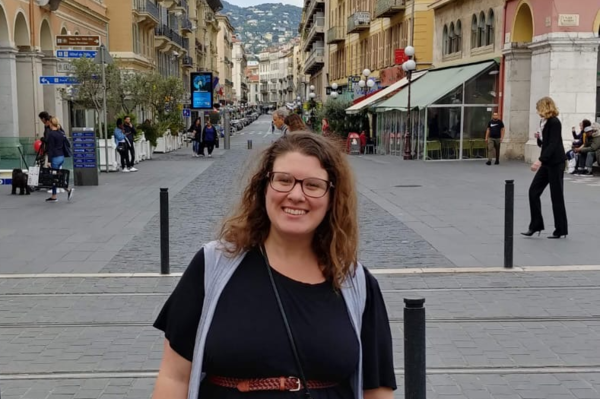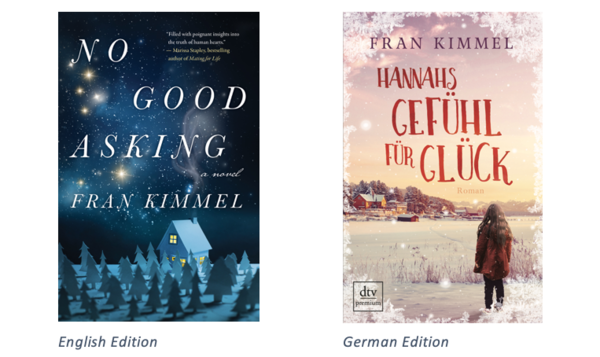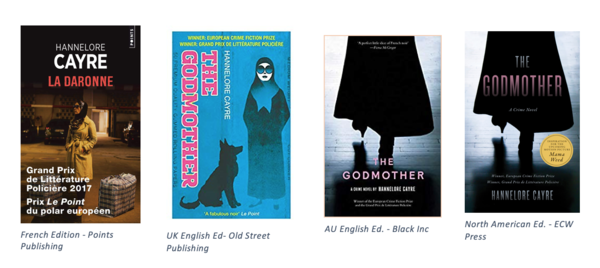Guest Column: What exactly is a ‘rights sale’?
Have you ever wondered how books rights are sold, and what kinds of rights are in play when a book is published? Many published authors are still mystified by some of these aspects of publishing, so we've got a special guest columnist with us for the next little while to share their expert knowledge of such things in a two part exclusive to Open Book. Please join us in welcoming Emily Ferko, Sales and Rights Director for ECW Press, who knows much more about this topic that we do.
Part 1: What exactly is a ‘rights sale’?
During my first few months in the publishing industry, there was a ton of lingo thrown around that had me scratching my head. Excerpt permissions. Territory rights. Translation contract. Expiration of Term.
I’m now the Sales & Rights Director at ECW Press, a medium sized, independent Canadian publishing house, and sure, now I’m down with the lingo. But I think it’s important to take a moment and remember my head scratching and break it down for anyone who may be wondering what it all means, especially with the upcoming buzz for Frankfurt International Book Fair 2020.
You’ve signed with a publisher, and it’s so exciting. You move through the editorial process with your editor, check proofs, sign off on a cover design. Then the book comes out, and you’re busy with interviews, posting on social media, planning a book launch, and doing readings. All this is with the intent of generating trade sales. In fact, most of the time when someone in publishing is talking about sales, they’re talking about trade sales.
Your CanLit News
Subscribe to Open Book’s newsletter to get local book events, literary content, writing tips, and more in your inbox
So, what is a trade sale?:
- Aunt Sally buys a book along with a stylish pair of reading socks at Indigo.
- An author does a reading at a local independent bookstore, and Charlie purchases a copy for his sister’s birthday gift.
- While shopping for laundry detergent at Walmart, Bob pops the latest John Grisham novel into his cart.
- Liz grabs a copy of the latest psychological thriller from a massive stack at Costco. She can’t resist, and it’ll go great with her extra-large bag of popcorn.
- Daniel needs to add another $12 to get free shipping on Amazon, so he adds a poetry book he’s been eyeing.
- These are retail accounts that a sales representative will visit with seasonally to pitch upcoming books. The retailer looks at the list of books, thinks about what types of books their customers like, places an order, and brings the books into the store so their customers can browse.
But there’s another aspect of sales that I knew nothing about until I got to publishing school – avid reader though I was. Rights sales! Rights sales are another way to generate revenue for a title and increase readership. There are a few different streams when it comes to rights sales:
-
Translation rights sale: a publisher or literary agent licenses a book for a specified period of time, in a specified language and territory (territory: what countries the publisher can sell the book into), to another publisher.
- Example: ECW Press sells Fran Kimmel’s novel, No Good Asking, to DTV Verlag for German language rights throughout the world.
-
Territory Rights: a publisher or literary agent licenses a book for a specified period of time in a specified territory, to another publisher.
- Example: Points Publishing in France publishes La Daronne by Hannelore Cayre. They sell World English translation rights to Old Street Publishing in the UK. Old Street sells Commonwealth minus UK English territory rights to Black Inc. Black Inc. sells North American English language territory rights to ECW Press.
-
Audio Rights: an audiobook publisher (such as Audible, Recorded Books, Findaway) purchases the audio rights to a book, then produces and sells the audiobook version.
- Example: Recorded Books purchases the audio rights for Outlander, casts and records the audiobook, and distributes the audio file to consumers.
-
Film Rights: a producer or production company pays for the option to begin developing a script based on a title and secure financing for screen adaptation.
- Example: Brad Pitt’s production company, Plan B, purchases the option to start developing Michael Lewis’s Moneyball for the screen. They’d pay a purchase fee to move forward with the project if they can find the appropriate backers.
-
Permissions Excerpt Rights: a publisher grants another publication the right to license snippets of content from a book.
- Example: a university course licenses (in a non-exclusive, copy-limited deal) a chapter from Naomi Klein’s No is Not Enough to put in their course pack for Environmental Studies 101.
So, how do publishers go about actually securing these types of deals? Tune in to part 2! Coming soon...
Emily Ferko did her undergrad at McMaster University in English Literature and her Masters Degree at the University of Ottawa in Canadian Literature before jumping from the study of books to the selling of books and completing the publishing program at Humber in 2015. After a brief stint as an intern at ECW Press, Emily refused to leave the building until they gave her a full-time job. In her spare time, you can usually find her running, laughing, or watching one of the Fast & the Furious movies.






